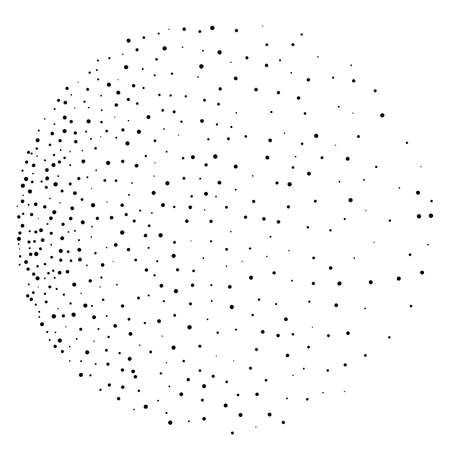Introduction: Eclipses and the British Monarchy
Eclipses have long held a place of fascination and awe within British culture, casting shadows not only across the sky but also over the collective imagination of the nation. Historically, these celestial events have been regarded as powerful omens, imbued with deep symbolic meaning and often interpreted as harbingers of significant change—particularly for those in positions of authority. For centuries, the monarchy of the United Kingdom has stood at the centre of such interpretations, with kings and queens looking to the heavens for guidance or warning during times of uncertainty. The interplay between eclipses and the royal chart reflects a uniquely British blend of tradition, superstition, and statecraft, where astrological phenomena were once believed to foreshadow pivotal moments in royal history. This introduction sets the stage for a deeper exploration into how eclipses have shaped perceptions of the monarchy, influencing both public sentiment and political narratives throughout the ages.
2. Astrological Foundations: Eclipses in the Royal Chart
The interpretation of eclipses within the context of the United Kingdom’s royal astrological chart is a time-honoured tradition, woven deeply into both historical analysis and contemporary practice. In British astrology, eclipses—whether solar or lunar—are viewed as celestial events that can trigger significant change, especially when they activate key points in the natal charts of individuals or institutions. The monarchy, as a central institution, often finds its chart scrutinised for such moments of cosmic alignment.
In practical terms, astrologers examine how eclipses interact with planets and sensitive angles within the royal chart, paying particular attention to their potential to herald shifts in leadership, national sentiment, or public perception. For example, an eclipse falling near the Midheaven (MC) might suggest changes in the visibility or role of the monarchy, while one activating the Sun or Moon could indicate personal developments for key royal figures.
Below is a table summarising the typical interpretations of eclipses as they relate to major points in the UK royal chart:
| Eclipse Placement | Astrological Meaning | Potential Impact on Monarchy |
|---|---|---|
| Near Sun | Identity, leadership, vitality | New era for sovereign; personal transformation |
| Near Moon | Public mood, traditions, emotional climate | Shifts in public support; changes in family matters |
| Near Ascendant (Rising) | Image, beginnings, personal approach | Renewal of royal image; generational change |
| Near Midheaven (MC) | Status, reputation, destiny | Transformation in monarchy’s role; rise or fall in status |
| Near Descendant (DSC) | Partnerships, treaties, alliances | Changes in diplomatic relations; marital unions or separations |
This blend of symbolism and timing allows astrologers to offer insights not just about specific royal individuals but also about collective experiences that ripple through the United Kingdom during pivotal eclipse seasons. While sceptics may dismiss these interpretations as quaint or superstitious, many Britons still find comfort and guidance in this reflective framework—especially during times of national uncertainty. In essence, eclipses serve as cosmic signposts on the ongoing journey of Britain’s monarchy, marking moments when history and destiny intertwine.

3. Historical Case Studies: Eclipses and Key Royal Events
The intriguing relationship between eclipses and key moments in the history of the British monarchy has been a source of fascination for both astrologers and historians alike. Throughout the centuries, significant royal events have coincided with solar or lunar eclipses, leading many to ponder whether these celestial phenomena have held deeper meanings for the nation’s leadership and collective psyche.
Coronations Under Shadowed Skies
One notable example is the coronation of King George VI in 1937, which followed closely after a partial solar eclipse visible across parts of the UK. At a time when Britain was recovering from the abdication crisis of Edward VIII, the eclipse seemed to symbolise both uncertainty and renewal. The atmosphere during this period was charged with anticipation and anxiety—a collective sense reflected in both astrological interpretations and public sentiment.
Abdications Marked by Celestial Alignments
The abdication of Edward VIII in December 1936, a seismic event in royal history, also coincided with an eclipse season. While there wasn’t an eclipse on the very day of his abdication, the surrounding eclipses added an air of inevitability and transformation to the period. For many, these cosmic events mirrored the sudden change in direction for both the monarchy and the country at large, highlighting how celestial cycles can coincide with pivotal decisions.
Turning Points and National Reflection
Other historical turning points—such as Queen Victoria’s death in 1901—were surrounded by eclipse activity that prompted reflection on national identity and continuity. Astrologically, such periods are often seen as times when old structures are challenged, making way for new beginnings. These moments offer an opportunity to consider how collective experiences under the shadow of an eclipse can influence public mood and royal decision-making alike.
A Continuing Legacy
The interplay between eclipses and key royal events continues to capture the imagination of those interested in Britain’s unique blend of tradition, symbolism, and celestial observation. Whether viewed through a psychological lens or as part of cultural lore, these historical case studies remind us that moments of darkness can often herald profound change—both for individuals and for nations.
Cultural and Political Reverberations
Eclipses have long been regarded as omens in British history, often coinciding with significant shifts not only within the monarchy but also across the broader cultural and political landscape. These celestial events, mapped onto the Royal Chart, have influenced public sentiment and shaped the collective psyche of the nation. In times when eclipses aligned with major royal events—such as coronations, abdications, or even scandals—the British public’s perception of the monarchy has been subtly but powerfully altered.
Public Sentiment and Media Narratives
The intersection between eclipses and royal milestones has fuelled tabloid headlines, speculative journalism, and even street-level conversations. The media’s portrayal of these astrological occurrences often amplifies their psychological impact on society. For instance, during an eclipse that coincided with a pivotal royal announcement, newspapers might use dramatic language or historical parallels to engage their readers’ emotions. This interplay between cosmic symbolism and media narrative can be seen in how the monarchy is both romanticised and scrutinised during such periods.
Broader Societal Shifts
Eclipses have also served as catalysts for social reflection and transformation. The alignment of these rare events with moments of national tension or reform invites people to question existing structures and values. Whether consciously or subconsciously, eclipses encourage individuals—and by extension, society—to contemplate change, resilience, and unity. This phenomenon extends beyond royal circles into everyday British life, from pub debates to academic discourse.
Examples of Eclipse-Driven Impact
| Year | Royal Event | Type of Eclipse | Cultural/Political Impact |
|---|---|---|---|
| 1901 | Queen Victorias Death | Total Solar Eclipse | National mourning intensified; rise in monarchist sentiment |
| 1936 | Abdication Crisis | Lunar Eclipse | Media frenzy; questioning of royal traditions; public polarisation |
| 1999 | Modernisation Initiatives | Total Solar Eclipse | Calls for transparency; increased youth engagement with monarchy debates |
Ultimately, eclipses serve as powerful metaphors for transition—casting temporary shadows that invite introspection before revealing a renewed light. Their influence on the United Kingdom’s monarchy is mirrored in the evolving attitudes of its people, making them not just astronomical events but key chapters in Britain’s ongoing cultural narrative.
5. Modern Monarchy: Recent Eclipses and Their Implications
In recent years, several significant eclipses have aligned with pivotal moments for the British Royal Family, prompting astrologers and royal watchers alike to ponder their deeper meaning. Eclipses are traditionally associated with periods of transformation, endings, and new beginnings—energies that have echoed through the Royal Household amid changing times. For example, the total lunar eclipse in January 2019 coincided closely with the Duke and Duchess of Sussex’s announcement to step back from their royal roles. This period marked a turning point, not just for Harry and Meghan, but also for the monarchy’s public image and internal dynamics. Astrologically, such eclipses often highlight underlying tensions that have been simmering beneath the surface, nudging individuals—and institutions—towards evolution.
Another powerful eclipse cycle took place in late 2021 and throughout 2022, as the world emerged from the challenges of the pandemic. These celestial events paralleled key moments in Queen Elizabeth II’s final year, including her Platinum Jubilee and eventual passing in September 2022. In astrology, solar and lunar eclipses on critical points of the UK’s royal chart can signal generational shifts and profound changes within the monarchy’s structure. The ascension of King Charles III, coming so soon after these eclipses, offers a textbook case of eclipse symbolism: an old era closing as a new chapter unfolds.
The current astrological climate suggests that eclipses will continue to play a vital role in shaping the monarchy’s path forward. With younger royals stepping into more prominent positions and conversations around modernisation gaining traction, each eclipse invites reflection on tradition versus innovation. These moments encourage both the Royal Family and the British public to consider what aspects of heritage should be preserved—and which might need to adapt for future generations.
In practical terms, eclipses challenge us to look beyond appearances and confront what is truly necessary for growth. For the British monarchy, this could mean embracing greater transparency or redefining its relationship with contemporary society. While astrological events like eclipses do not cause change directly, they often coincide with times when decisions come to a head or long-standing issues demand resolution.
As we look ahead to future eclipses falling across sensitive points in the UK’s national or royal charts, it is wise to stay mindful of their potential to herald further transformation. Whether these changes manifest as subtle shifts in public sentiment or major institutional reforms, they remind us that even enduring symbols like the monarchy are subject to cycles of renewal—inviting both respect for tradition and openness to evolution.
6. Reflections: The Ongoing Dance of Astrology and Monarchy
The enduring relationship between astrology and the British monarchy is more than just a historical curiosity—it is a living dialogue that continues to shape public imagination and cultural identity. In contemporary Britain, eclipses still capture collective attention, inviting speculation about their possible significance for the Royal Family. While modern science may have demystified the mechanics of these celestial events, their psychological impact persists, offering a powerful metaphor for transformation, uncertainty, and renewal within both the monarchy and society at large.
For many, eclipses serve as moments of pause—a chance to reflect on change and continuity within the Royal institution. They remind us that even established traditions are subject to cycles of darkness and light, echoing periods of challenge and adaptation faced by monarchs throughout history. These cosmic phenomena encourage us to contemplate how the monarchy navigates societal shifts, public opinion, and its own internal evolution.
On a personal level, engaging with the symbolism of eclipses can foster empathy for those in positions of visibility and responsibility. Royals often find themselves under intense scrutiny during times of transition, much like the heightened attention an eclipse commands. Recognising this parallel can deepen our understanding of the psychological pressures faced by members of the Royal Family as they balance heritage with modern expectations.
Culturally, eclipses highlight the enduring power of myth and narrative in shaping national identity. Whether interpreted as omens or opportunities for renewal, these celestial events invite collective storytelling that bridges past and present. By reflecting on how eclipses have historically intersected with royal milestones, we gain insight into the ways Britons use shared symbols to process change, unite communities, and project hopes for the future.
Ultimately, considering the role of eclipses in the Royal Chart challenges us to acknowledge both our fascination with tradition and our openness to transformation. As Britain moves forward, this ongoing dance between astrology and monarchy offers a unique lens through which to understand our evolving relationship with authority, heritage, and collective destiny. Perhaps most importantly, it encourages each of us to find meaning in cycles of darkness and light—both in our leaders’ lives and our own.

